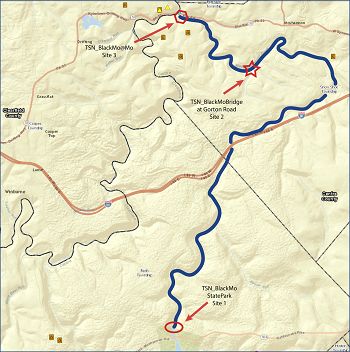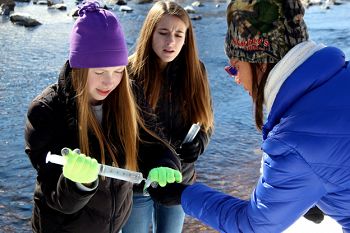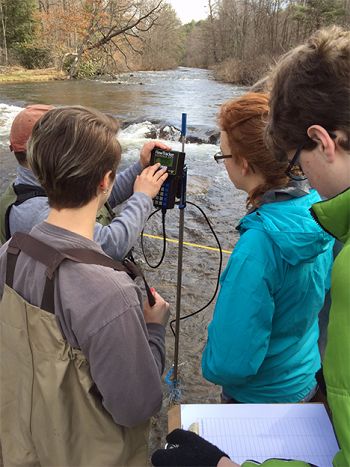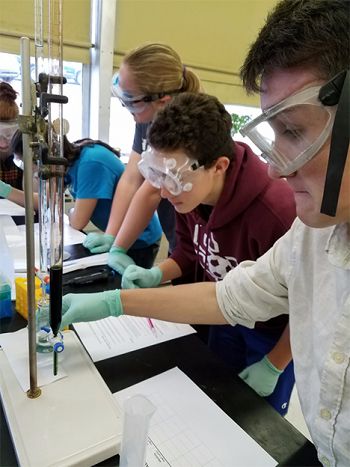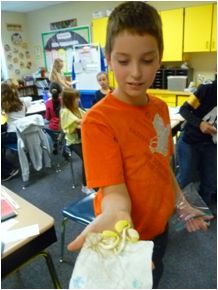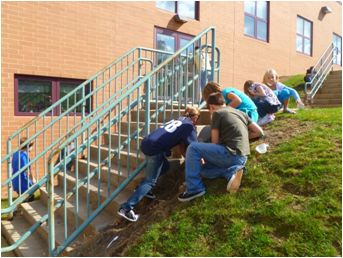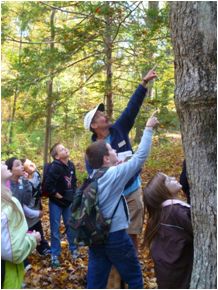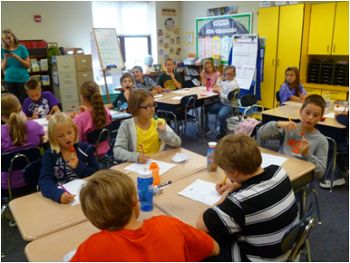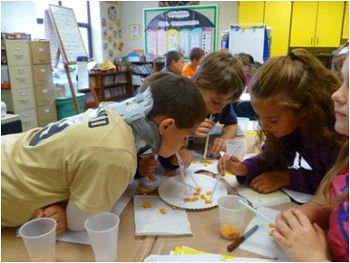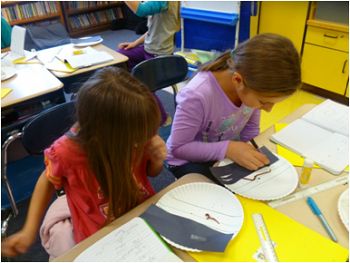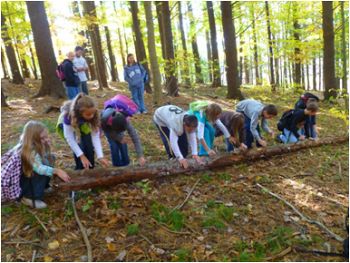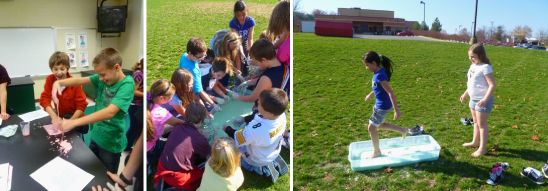K-12 Education
TeenShale students from State College Area High School measuring dischange and collecting water samples at Black Moshannon State Park
Map courtesy of Susquehanna River Basin Commission Water Resource Portal (www.gis.srbc.net/wrp/). Gas pads approved by rule (orange icon) or awaiting approval (yellow triangle).
Collaborations with University of Pittsburgh provide the 2015-2016 participants a hands-on opportunity to measure several water quality parameters in the classroom laboratory.
“Not only can you gather realistic scientific data, but it’s for a cause,” said Emily Redmond, an 8th grader. “I think the experience can encourage students to learn more about fracking and its effects on the environment. It’s a once in a lifetime opportunity because I bet not many other people are doing this kind of experiment.”
“I feel like in the classroom you learn more about theory, and in the field you apply what you learned,” said Valeria Soler Pelaez, a 9th grader. “You make more connections to the real world. And I feel like this helps it stay in your brain. It helps you remember by making these connections you’ve never thought about.”
At the conclusion of the 2015-2016 academic year, this project has trained more than 80 students in water quality monitoring field techniques and data analyses of water quality samples. This field based inquiry driven project teaches participants water quality monitoring techniques used by academics and government agencies, data analyses and visualization skills, and completes the scientific method with communication of their research in student byline news articles and scientific meetings.
—————————————————————————————————————————————————————————
A 4th grade student at Philipsburg Elementary shows off the bean seed he grew in the dark as part of an experiment on how much light bean seeds need to grow.
4th grade students at Philipsburg Elementary hunt for worms in the playground soil to test what effect adding worms to soil will have on bean seed growth.
On a field trip to Shaver’s Creek, 4th grade students at Philipsburg Elementary learn to identify local birds.
As an introduction to the scientific method, 4th grade students at Philipsburg Elementary test how many licks it takes to get to the center of a tootsie pop.
4th grade students at Philipsburg Elementary test how they can sustainably “fish” goldfish crackers from their lake.
4th grade students at Philipsburg Elementary turn over a log during a field trip to Shaver’s Creek to look for organisms.
4th grade students at Philipsburg Elementary make and investigate oobleck to learn about states of matter.
A 4th grade student at Philipsburg Elementary shows off the bean seed he grew in the dark as part of an experiment on how much light bean seeds need to grow.
4th grade students at Philipsburg Elementary hunt for worms in the playground soil to test what effect adding worms to soil will have on bean seed growth.
As an introduction to the scientific method, 4th grade students at Philipsburg Elementary test how many licks it takes to get to the center of a tootsie pop.
4th grade students at Philipsburg Elementary test how they can sustainably “fish” goldfish crackers from their lake.
4th grade students at Philipsburg Elementary study earthworm behavior.
4th grade students at Philipsburg Elementary make and investigate oobleck to learn about states of matter.
4th grade students at Philipsburg Elementary turn over a log during a field trip to Shaver’s Creek to look for organisms.
On a field trip to Shaver’s Creek, 4th grade students at Philipsburg Elementary learn to identify local birds.
Water samples are filtered through a 0.45 micorn filter in the field.
Map courtesy of Susquehanna River Basin Commission Water Resource Portal (www.gis.srbc.net/wrp/). Gas pads approved by rule (orange icon) or awaiting approval (yellow triangle).
A quick review of the FlowTracker is provided before the students begin to measure discharge.
Collaborations with University of Pittsburgh provide the 2015-2016 participants a hands-on opportunity to measure several water quality parameters in the classroom laboratory.
Associated Files
Slices of Time (QuickTime movie)
(138 MB mov)
Media presentation of the scales at which environmental processes occur
News
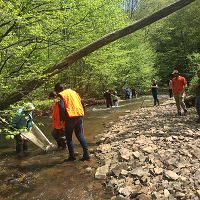
TeenShale evaluates Wallace Run near abandoned well using macroinvertebrate surveys
07 May 2019 - On a warm and sunny day in May, the 2018-2019 cohort took to the field! Along with Centre County Pennsylvania Senior Environmental Corp member...
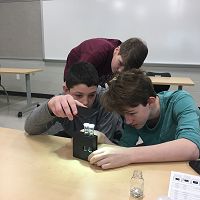
TeenShale dives into stream test kits by HACH for water quality analyses
24 Jan 2019 - Without a winter warmup, students forgo the field for the classroom to discover what is in the HACH box. The 2018-2019 TeenShale cohort...
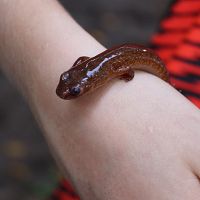
The 2018-2019 TeenShale cohort engages with CCPaSEC for first field campaign
09 Oct 2018 - Building upon the abandoned well water quality investigations of Wallace Run, this year’s cohort plans to engage with the Centre County...
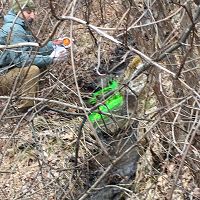
TeenShale 2017-2018 cohort complete the field season with a “mock” spill experiment
11 Apr 2018 - New this year, the TeenShale Network participants teamed with members of the Pennsylvania Department of Environmental Protection to observe the...
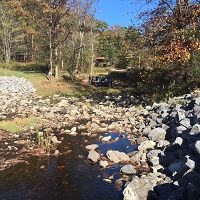
The 2017 – 2018 cohort of TeenShale meets for first in-house & in-field experience
17 Oct 2017 - This year’s cohort of TeenShale Network consists of eight returning participants (10th – 12th graders) and eight new team members (8th...
Explore Further

